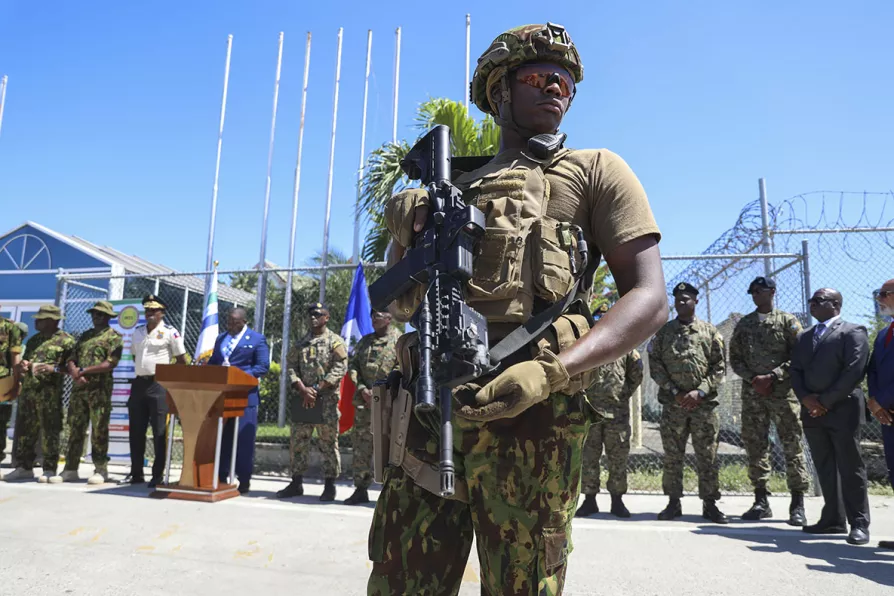Gangs in Haiti open fire on UN helicopter

 A Kenyan police officer, part of a UN-backed multinational force, stands guard on the tarmac during a ceremony to welcome police officers from the Bahamas at the Toussaint Louverture International Airport in Port-au-Prince, Haiti, October 18, 2024
A Kenyan police officer, part of a UN-backed multinational force, stands guard on the tarmac during a ceremony to welcome police officers from the Bahamas at the Toussaint Louverture International Airport in Port-au-Prince, Haiti, October 18, 2024
GANGS opened fire on a United Nations helicopter, forcing it to land in Port-au-Prince, as violence surged again in Haiti’s capital.
No-one was injured when several rounds of gunfire hit the helicopter, which was carrying three crew members and 15 passengers, according to a UN source.
The helicopter, which had taken off from Port-au-Prince before it was attacked, landed safely, the source said.
Similar stories














